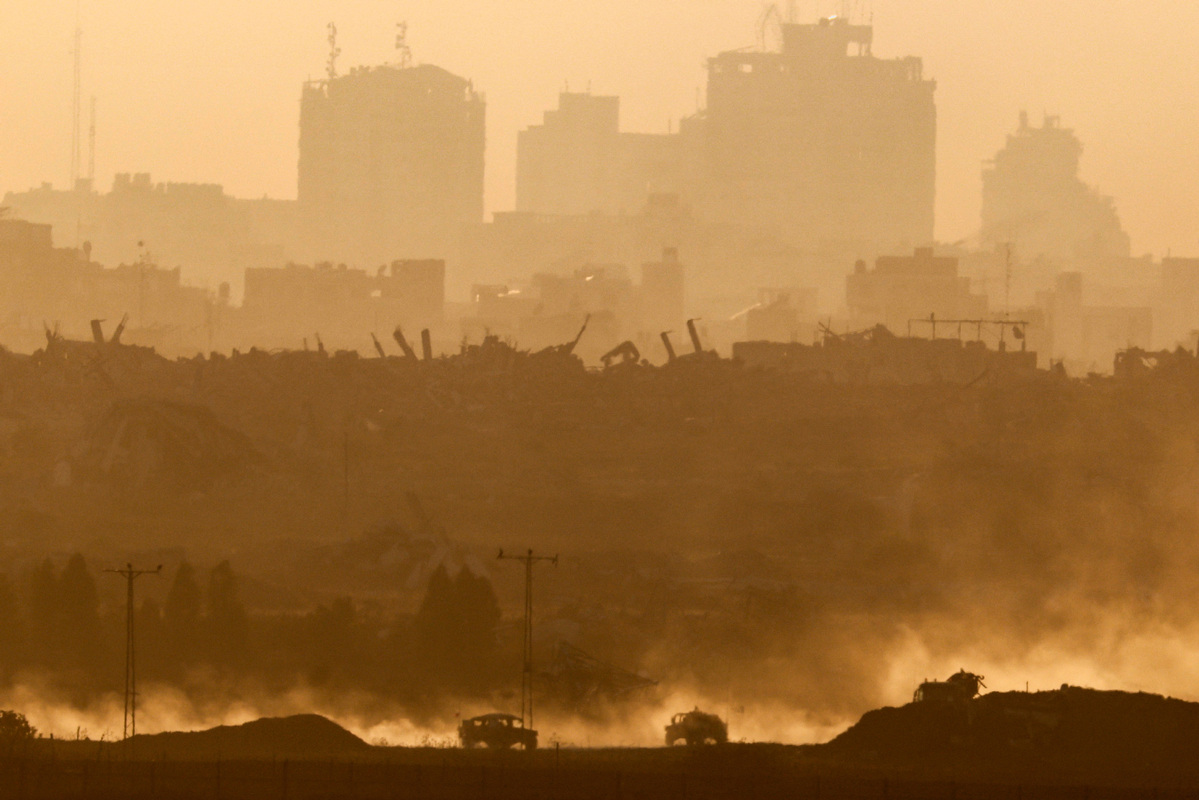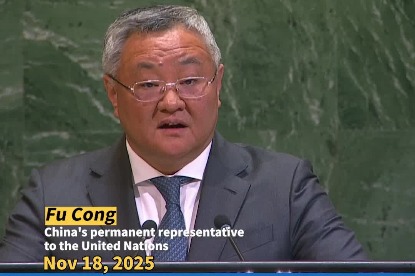Stance on Gaza shows limits of US policy shift
Experts: Washington's economic focus clashes with support for Israel's actions


Washington's recent recalibration of its Middle East policy signals a more pragmatic, economy-focused approach that could reshape regional power dynamics, analysts say.
However, the United States' unflinching support for Israel's military operation in the Gaza Strip has undercut the coherence of this strategic shift, simultaneously undermining its credibility on the global stage, they added.
Yu Guoqing, a researcher at the Institute of West-Asian and African Studies at the Chinese Academy of Social Sciences in Beijing, said the US has made remarkable changes to its Middle East policy in recent weeks, as manifested by a series of major developments.
Last month, US President Donald Trump made his first major overseas trip of his second term to Saudi Arabia, Qatar and the United Arab Emirates. The visits yielded more than $2 trillion in deals — including a $600 billion investment commitment from Saudi Arabia, a $1.2 trillion economic exchange agreement with Qatar, and $200 billion in US-UAE commercial agreements.
Notably, Trump skipped Israel on his regional itinerary — a rare move for a US president, Yu said, adding that divisions between the US and Israel have also emerged on other issues.
On May 23, the US took initial steps to ease sanctions on Syria that have been in place for decades, following Trump's pledge to do so during his Middle East trip. The Office of Foreign Assets Control of the US Treasury issued Syria General License 25 to provide immediate sanctions relief for Syria.
Over the past few weeks, the US has also continued to hold talks with Iran, declared a ceasefire with the Houthis in Yemen, and conducted unilateral negotiations to secure the release of Israeli soldier Edan Alexander — a US citizen — from Hamas' captivity. The US administration also fired three top pro-Israel officials.
Yu said there has been a shift in the focus of Trump's Middle East policy during his second term. Compared with the first term, he has directed more attention to economic cooperation with Gulf countries this year rather than the traditional US-Israel alliance.
"The current US Middle East policy prioritizes safeguarding US interests and is more pragmatic. On some issues, it doesn't entirely align with Israel's stance or intentions," he said. "Even, the US deliberately keeps its distance from Israel to gain the favor of other countries."
Mehmood Ul Hassan Khan, executive director of the Center for South Asia and International Studies in Islamabad, said the US wants to seek more inflows of foreign direct investment and consolidation of economic and trade relations with all the rich and powerful regional countries because of "the US' weak economy and low industrial productivity".
He Yun, deputy dean of the Institute of African Studies at Hunan University, said Trump's recent moves suggest a more flexible and transactional approach.
"The US wants to reduce its military footprint in the Middle East and focus on other global priorities, so it needs to have a more stable Middle East by managing conflicts, containing escalation and ensuring that regional crises don't spiral into broader geopolitical entanglements," she said, adding that these moves are likely to reshape the region's power dynamics to some extent.
However, the strategic US-Israel alliance remains solid. Earlier this month, the US single-handedly vetoed a United Nations Security Council draft resolution on Gaza. The draft resolution, which would have demanded an immediate ceasefire in Gaza and the lifting of restrictions on humanitarian aid, won the support of 14 out of the 15 Security Council members.
The conflict has had devastating consequences and humanitarian crises. The Palestinian death toll from continuing Israeli attacks on Gaza has surpassed 55,000, health authorities in Gaza said on Wednesday. Israel has also significantly intensified its blockade on the enclave in recent months.
The US has vetoed five UN resolutions on the Gaza ceasefire since the conflict broke out on Oct 7, 2023.
In an interview with Bloomberg News released on Tuesday, US Ambassador to Israel Mike Huckabee said he did not think that an independent Palestinian state remains a goal of US foreign policy.
Yu of the Chinese Academy of Social Sciences said: "Israel has been a longtime US ally in the Middle East, and there are powerful Jewish interest groups in the US that strongly support Israel. Thus, while the US may develop relationships with other countries, it will not easily abandon its fundamental support for Israel."
The US consistently stands alone with Israel in Security Council votes, which undoubtedly affects its moral standing and international image negatively, he added.
Tactical disagreements
Meanwhile, He of Hunan University said there might be tactical disagreements or some friction over the way certain policies are implemented — for example, how Israel conducts its military operation in Gaza or how to approach normalization with Arab states.
However, when it comes to the core pillars of the relationship — military support, intelligence cooperation and diplomatic backing — there is remarkable consistency, she said. It is deeply rooted in US domestic politics, shared strategic interests and decades of bipartisan support, she added.
"The US veto at the UN is a perfect example of that. It shows that even amid shifting regional dynamics or political tensions, Washington is still willing to shield Israel from international pressure."
In many parts of the world — especially the Global South and the Arab-Muslim world — the US is increasingly seen as biased and unwilling to hold Israel accountable for actions that result in significant humanitarian crises, particularly in Gaza, He said.
"That creates real challenges for America's global image. It undermines its credibility when it speaks about human rights, the rule of law, or democratic values," she said.
Agencies contributed to this story.
































